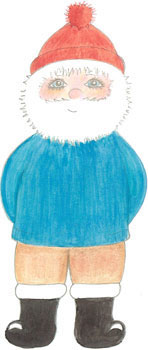
Salty Sam’s Fun Blog for Children
Number 108
The History of Dolls’ Houses
Hello Everyone

Lots of little girls have dolls’ houses. Sometimes they never grow out of them and continue to make things and collect things for them even when they are grown-up.
Do you have one?
The history of dolls’ houses goes back a long way. The first ones that we know of were made in ancient Egypt thousands of years ago and were placed in tombs for religious purposes. They were made of wood and contained model furniture, servants and pets.
Egyptian tombs were filled with things that were designed to be taken to the afterlife (or heaven).
The kinds of houses we know today were around in the 1500s but funnily enough they were made for women not little girls. They were miniature houses rather than toys; and a fashionable thing to own.
As the houses and all the furniture and accessories inside were made by very skilled craftsmen, they were works of art, and were only owned by rich women. They were too precious and delicate to risk letting children touch them.
ln fact, they were so expensive they could cost as much as a small, real house!
One of the most famous dolls’ houses was owned by Queen Mary. lt was presented to her in 1924 and can be seen on display at Windsor Castle.
During the 19th century the hobby of collecting dolls’ houses became something people could do even if they weren’t very rich. This was because they did not have to be hand-made anymore. They could be mass-produced in factories; firstly in England and Germany and then in America. At this point they became toys for little girls.
ln the 20th century, they continued to be popular. They could be of Georgian or Victorian design or a more modern one.
Any large toy museum now will have a selection of dolls’ houses showing many different designs. People are fascinated to see tiny replicas of every-day items that have been part of people’s lives through history.
Dolls’ houses can be made from kits, and furniture and items can be collected from market stalls, shops and online suppliers but you can make items for your house yourself if you have nimble fingers. (Blog Posts 87 and 97)
Emily has a dolls’ house, which is why Auntie Alice has been making items for dolls’ houses for these blogs – and l thought you might to know more about them.
Have a look in this week’s picture gallery and see how many items you can see in the houses that we don’t use anymore.
Bye bye everyone – don’t forget to subscribe to my blog!
lf you like my blog, please support it by telling all your friends and followers about it.
Thank you!
And see you again next Fun Friday!
Love and kisses
Salty Sam

www.christina-sinclair.com

Bill and Bob’s Joke of the Week![]()
![]()
Bob: What did one wall say to the other wall?
Bill: l don’t know. What did one wall say to the other wall?
Bob: l’ll meet you at the corner!
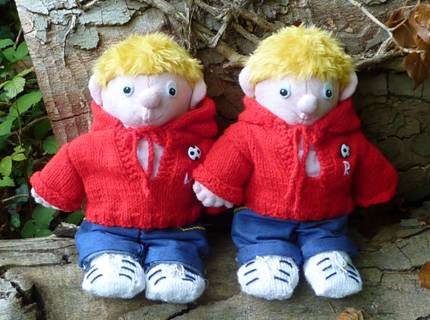
Salty Sam © Christina Sinclair 2015
Unauthorized use and/or duplication of material from this blog without express and written permission from this blog’s author and owner is strictly prohibited.
Links may be used to www.christina-sinclair.com

Picture Gallery

A Georgian style dolls’ house
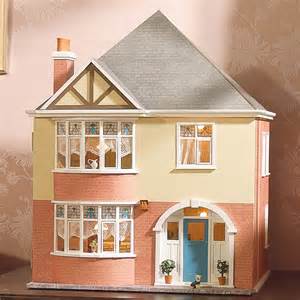
A 1930’s style dolls’ house
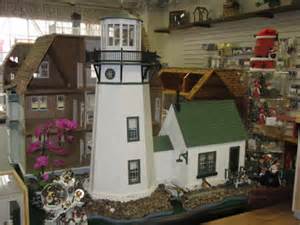 A light house dolls’ house
A light house dolls’ house
 A Victorian Interior
A Victorian Interior
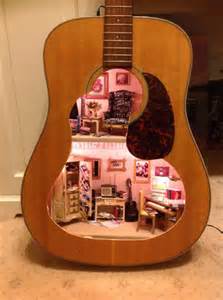
A dolls’ house inside a guitar
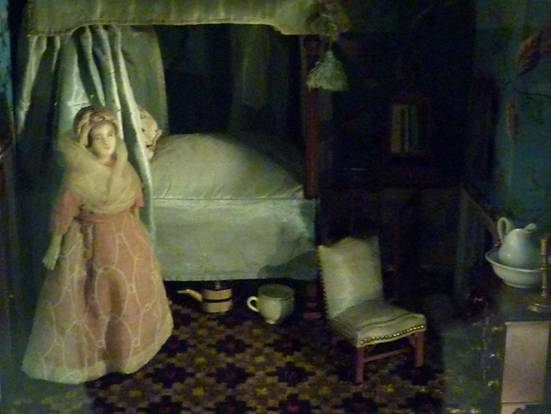 Dolls’ house bedroom around 1760
Dolls’ house bedroom around 1760
 Dolls’ house dining room around 1760
Dolls’ house dining room around 1760
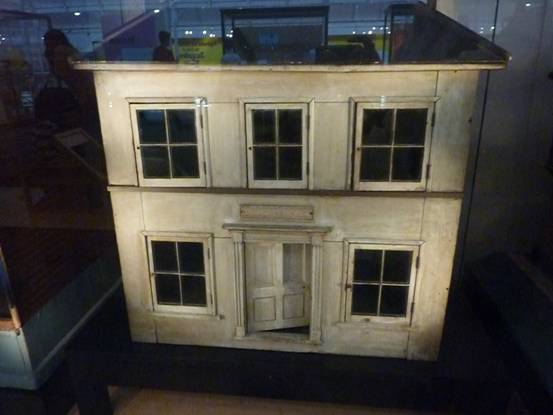 A dolls’ house from the reign of William IV 1831
A dolls’ house from the reign of William IV 1831
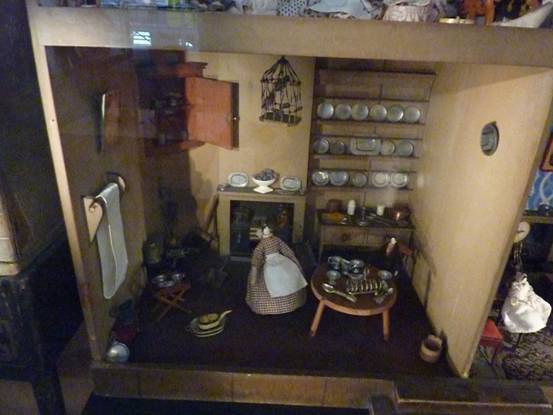
A kitchen from 1840
 A kitchen from 1860 – I think they might be having hard boiled eggs for tea
A kitchen from 1860 – I think they might be having hard boiled eggs for tea ![]()
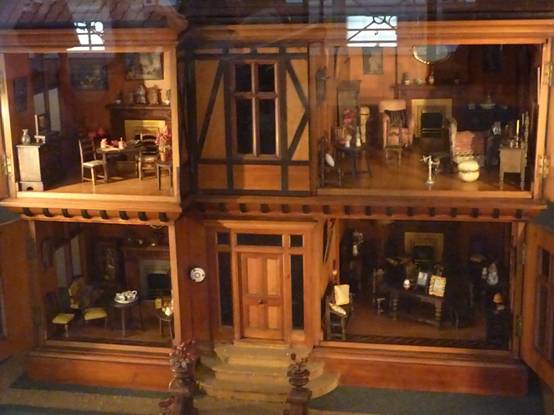
Queen Mary’s dolls’ house 1887
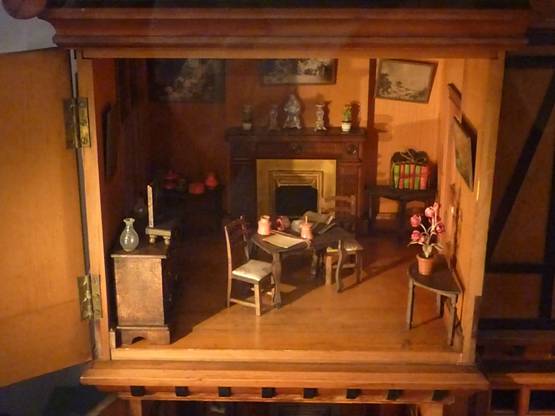 The house is made from wood and has many accessories 1887
The house is made from wood and has many accessories 1887
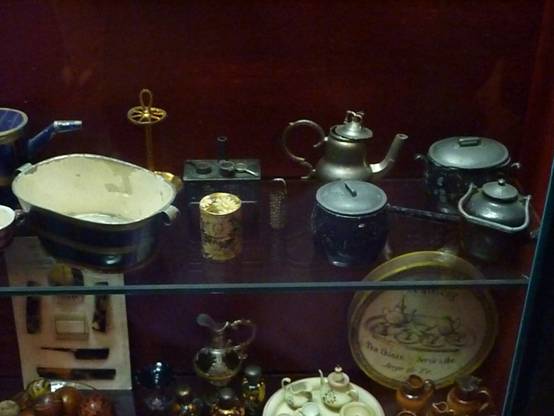
Victorian dolls’ house accessories – this kind of bath would have been filled with water from jugs because it wasn’t plumbed in
 Victorian dolls’ house furniture
Victorian dolls’ house furniture
There is an oil lamp and a candle stick – the jug and bowl was for people to wash themselves
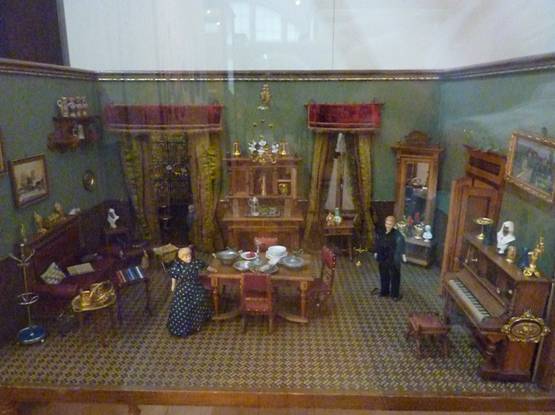
A dining room from 1900
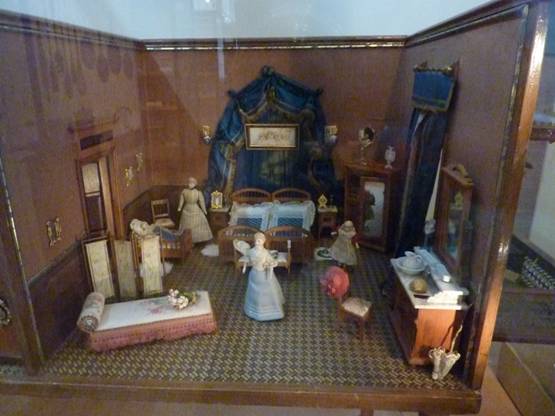 A bedroom with a chaise-long and screen from 1900
A bedroom with a chaise-long and screen from 1900
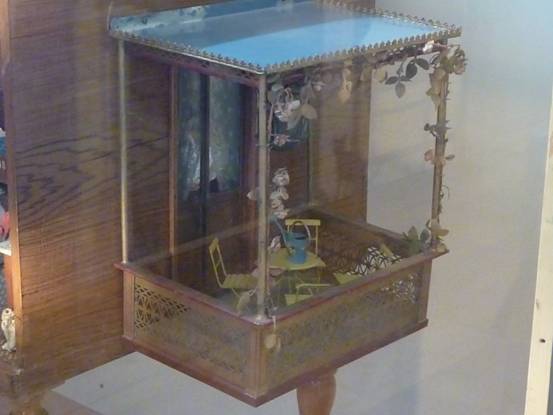
A balcony on the outside of a dolls’ house 1900
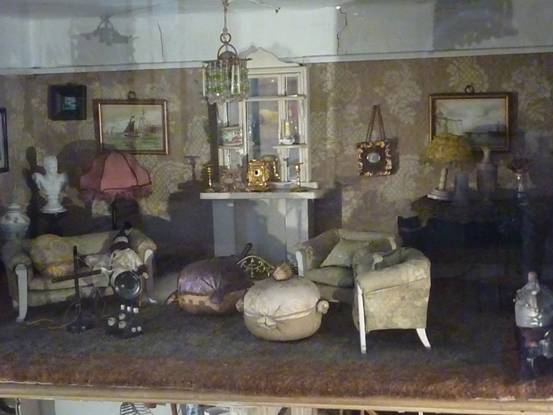 This living room has padded chairs and sofa 1900
This living room has padded chairs and sofa 1900
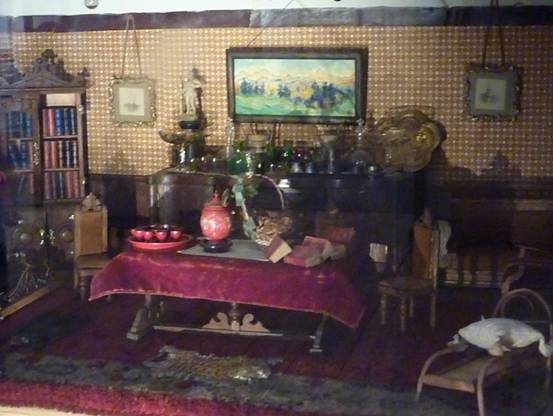
A dining room from 1900
The décor has dark colours as this was usual in the late Victorian era
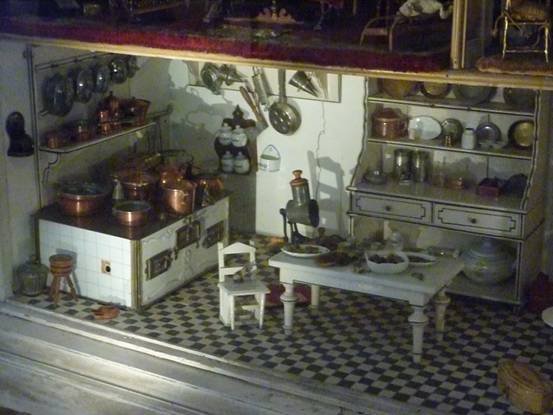 A large kitchen from 1900
A large kitchen from 1900
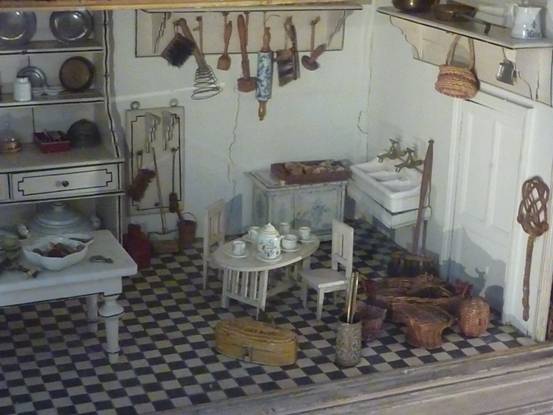
This 1900 kitchen is full of accessories
There is a carpet beater hanging on the wall to the far right – rugs were hung over a line in the garden and beaten with these implements to dislodge dust
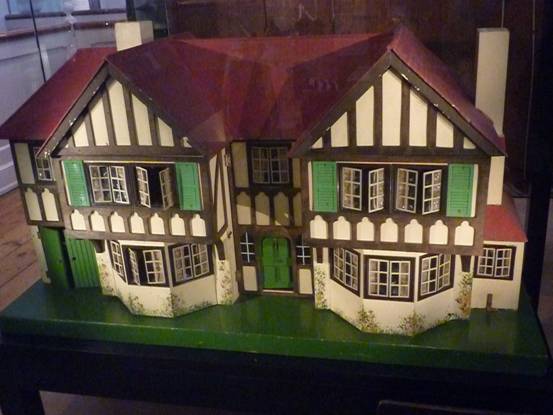 A dolls’ house from 1920
A dolls’ house from 1920
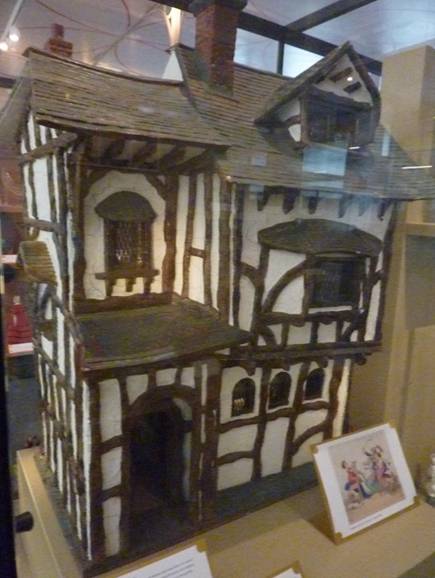
Fantasy house 1970
 A dining room from 1998
A dining room from 1998

A hat shop from 1924
 This Sylvanian family seems to be doing good business in their baker’s shop
This Sylvanian family seems to be doing good business in their baker’s shop ![]()

 THE SALTY SAM NEWS DESK
THE SALTY SAM NEWS DESK

Do you like knock knock jokes?

Bill and Bob do, and they have given me some of their favourites to put on this week’s blog post:-

Knock Knock!
Who’s there?
William
William who?
William mind your own business!
![]()
Knock Knock!
Who’s there?
Troy
Troy who?
Troy as I might I can’t reach the door bell!
![]()
Knock Knock!
Who’s there?
Mister
Mister who?
Mister last bus – let me back in!
![]()
Knock Knock!
Who’s there?
Sawyer
Sawyer who?
Sawyer lights on and I thought I’d drop by!
![]()
Knock Knock!
Who’s there?
Wooden Shoe
Wooden Shoe who?
Wooden Shoe like to know!
![]()
Knock Knock!
Who’s there?
Norma Lee
Norma Lee who?
Norma Lee I would be at school but I’ve got the day off.
![]()
Knock Knock!
Who’s there?
Omar
Omar who?
Omar God! I’ve got the wrong house!
![]()
Knock Knock!
Who’s there?
Cornflakes
Cornflakes who?
I’ll tell you tomorrow. It’s is a cereal!


*********************
TO ADVERTISE ON THIS BLOG
PLEASE CONTACT:
christina.sinclair.ads@aol.co.uk
*********************


Crafty Tip
This is how you can make a mat and rug for your dolls’ house.
A little carpet or mat can be made out of any left over piece of plastic canvas you have that is a suitable shape and size.

You can use any colours and canvas work stitches that you like but don’t use stitches that will make the mat become too thick. Simple stitches like cross stitches or diagonal stitches are best because you want to keep the scale of the work small.
This door mat uses a piece of canvas 19 holes by 10 holes.
Use diagonal stitches to embroider ‘Hello’ then fill in the canvas between the letters and add a contrasting edge.


This rug uses a piece of canvas 34 holes by 20 holes and four colours of dk yarn.
Start working from the centre (c) and using cross stitches work outwards.
1 = white
2 = turquoise
3 = dark blue
4 = light blue
|
1 |
1 |
1 |
4 |
4 |
2 |
2 |
3 |
3 |
3 |
3 |
3 |
2 |
2 |
4 |
4 |
1 |
1 |
1 |
|
1 |
1 |
4 |
4 |
2 |
2 |
3 |
3 |
3 |
3 |
3 |
3 |
3 |
2 |
2 |
4 |
4 |
1 |
1 |
|
1 |
4 |
4 |
2 |
2 |
3 |
3 |
3 |
3 |
3 |
3 |
3 |
3 |
3 |
2 |
2 |
4 |
4 |
1 |
|
4 |
4 |
2 |
2 |
3 |
3 |
3 |
3 |
3 |
2 |
3 |
3 |
3 |
3 |
3 |
2 |
2 |
4 |
4 |
|
4 |
2 |
2 |
3 |
3 |
3 |
3 |
3 |
2 |
1 |
2 |
3 |
3 |
3 |
3 |
3 |
2 |
2 |
4 |
|
2 |
2 |
3 |
3 |
3 |
3 |
3 |
2 |
1 |
1 |
1 |
2 |
3 |
3 |
3 |
3 |
3 |
2 |
2 |
|
2 |
3 |
3 |
3 |
3 |
3 |
2 |
1 |
1 |
4 |
1 |
1 |
2 |
3 |
3 |
3 |
3 |
3 |
2 |
|
3 |
3 |
3 |
3 |
3 |
2 |
1 |
1 |
4 |
3 |
4 |
1 |
1 |
2 |
3 |
3 |
3 |
3 |
3 |
|
3 |
3 |
3 |
3 |
2 |
1 |
1 |
4 |
3 |
2 |
3 |
4 |
1 |
1 |
2 |
3 |
3 |
3 |
3 |
|
3 |
3 |
3 |
2 |
1 |
1 |
4 |
3 |
2 |
1 |
2 |
3 |
4 |
1 |
1 |
2 |
3 |
3 |
3 |
|
3 |
3 |
2 |
1 |
1 |
4 |
3 |
2 |
1 |
1 |
1 |
2 |
3 |
4 |
1 |
1 |
2 |
3 |
3 |
|
3 |
2 |
1 |
1 |
4 |
3 |
2 |
1 |
1 |
1c |
1 |
1 |
2 |
3 |
4 |
1 |
1 |
2 |
3 |
|
3 |
3 |
2 |
1 |
1 |
4 |
3 |
2 |
1 |
1 |
1 |
2 |
3 |
4 |
1 |
1 |
2 |
3 |
3 |
|
3 |
3 |
3 |
2 |
1 |
1 |
4 |
3 |
2 |
1 |
2 |
3 |
4 |
1 |
1 |
2 |
3 |
3 |
3 |
|
3 |
3 |
3 |
3 |
2 |
1 |
1 |
4 |
3 |
2 |
3 |
4 |
1 |
1 |
2 |
3 |
3 |
3 |
3 |
|
3 |
3 |
3 |
3 |
3 |
2 |
1 |
1 |
4 |
3 |
4 |
1 |
1 |
2 |
3 |
3 |
3 |
3 |
3 |
|
2 |
3 |
3 |
3 |
3 |
3 |
2 |
1 |
1 |
4 |
1 |
1 |
2 |
3 |
3 |
3 |
3 |
3 |
2 |
|
2 |
2 |
3 |
3 |
3 |
3 |
3 |
2 |
1 |
1 |
1 |
2 |
3 |
3 |
3 |
3 |
3 |
2 |
2 |
|
4 |
2 |
2 |
3 |
3 |
3 |
3 |
3 |
2 |
1 |
2 |
3 |
3 |
3 |
3 |
3 |
2 |
2 |
4 |
|
4 |
4 |
2 |
2 |
3 |
3 |
3 |
3 |
3 |
2 |
3 |
3 |
3 |
3 |
3 |
2 |
2 |
4 |
4 |
|
1 |
4 |
4 |
2 |
2 |
3 |
3 |
3 |
3 |
3 |
3 |
3 |
3 |
3 |
2 |
2 |
4 |
4 |
1 |
|
1 |
1 |
4 |
4 |
2 |
2 |
3 |
3 |
3 |
3 |
3 |
3 |
3 |
2 |
2 |
4 |
4 |
1 |
1 |
|
1 |
1 |
1 |
4 |
4 |
2 |
2 |
3 |
3 |
3 |
3 |
3 |
2 |
2 |
4 |
4 |
1 |
1 |
1 |
Continue working each side of the central pattern towards the edge as follows:-
2 lines of 1
1 line of 4
1 line of 3
1 line of 2
Then use over-sew stitches to create a coloured edge (turquoise sides and light blue ends).



BLOW MY FOGHORN!!!
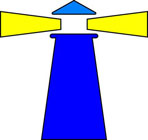
PLUS
Salty Sam fans can join in with their comments and share them with children all over the world. You will need to ask permission if you are not an adult.
Enter your e-mail address to subscribe to my blog and receive new Salty Sam Blog Posts for free by e-mail every week. Your address will be kept private and will not be shared with any third party.
Sign me up at the side bar



lt’s the Weekend

FURNlTURE WORDSEARCH
|
D |
Y |
F |
C |
H |
A |
I |
R |
F |
S |
Y |
B |
A |
X |
Z |
B |
T |
U |
P |
|
J |
U |
Y |
U |
F |
G |
H |
I |
K |
H |
G |
R |
D |
F |
V |
C |
X |
B |
L |
|
P |
L |
J |
P |
M |
N |
B |
G |
T |
F |
D |
Y |
I |
K |
B |
V |
T |
N |
L |
|
P |
L |
M |
B |
H |
B |
V |
F |
D |
C |
X |
I |
L |
L |
N |
M |
K |
V |
J |
|
O |
K |
N |
O |
M |
J |
H |
G |
F |
R |
I |
O |
M |
L |
P |
D |
C |
B |
H |
|
S |
O |
F |
A |
P |
C |
P |
D |
P |
L |
K |
J |
G |
D |
G |
I |
P |
L |
H |
|
K |
N |
M |
R |
B |
H |
C |
E |
K |
N |
P |
I |
W |
L |
J |
N |
M |
L |
G |
|
O |
P |
J |
D |
R |
E |
S |
S |
I |
N |
G |
T |
A |
B |
L |
E |
J |
H |
F |
|
J |
H |
B |
V |
F |
S |
U |
K |
K |
U |
H |
B |
R |
N |
M |
R |
U |
J |
D |
|
O |
I |
U |
Y |
T |
T |
R |
E |
T |
Y |
U |
J |
D |
L |
K |
J |
H |
Y |
S |
|
I |
J |
H |
G |
F |
D |
S |
T |
Y |
I |
P |
P |
R |
H |
G |
Y |
U |
I |
A |
|
H |
G |
F |
D |
R |
Y |
U |
I |
O |
I |
S |
G |
O |
H |
B |
H |
J |
I |
Q |
|
Y |
T |
R |
E |
E |
D |
G |
H |
J |
U |
T |
A |
B |
L |
E |
O |
K |
L |
W |
|
U |
J |
K |
O |
F |
D |
G |
B |
H |
N |
O |
K |
E |
K |
D |
L |
M |
I |
E |
|
U |
H |
J |
I |
K |
O |
L |
P |
L |
D |
O |
M |
H |
S |
F |
R |
Y |
G |
T |
|
K |
J |
U |
H |
G |
T |
U |
I |
K |
H |
V |
B |
C |
X |
Z |
C |
V |
B |
Y |
|
H |
F |
C |
V |
G |
D |
R |
T |
U |
N |
J |
K |
P |
L |
M |
B |
V |
H |
F |
|
P |
L |
O |
K |
M |
N |
B |
H |
G |
I |
T |
R |
E |
W |
Q |
R |
T |
Y |
D |
|
R |
E |
W |
S |
D |
G |
U |
H |
I |
J |
K |
O |
K |
B |
N |
M |
K |
L |
S |
CHEST STOOL
BED CUPBOARD
WARDROBE DRESSING TABLE
SOFA DESK
CHAIR TABLE
Answers next week…

Please note that the material on this blog is for personal use and for use in classrooms only.
It is a copyright infringement and, therefore, illegal under international law to sell items made with these patterns.
Use of the toys and projects is at your own risk.
©Christina Sinclair Designs 2015

ChildLine is a private and confidential place for you to talk. This means that whatever you say, stays between you and ChildLine.
You don’t even need to give your real name if you don’t want to.
If you have a problem and you want to talk to someone please telephone.
The calls are free. (This is a British telephone number.)
Calls to this number will not be listed on a telephone bill.


